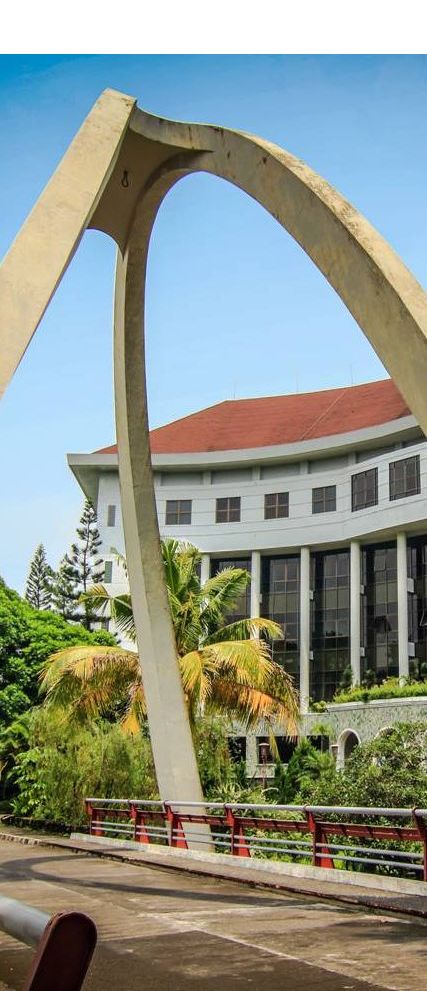The Graduate School is a Faculty-level Unit at Universitas Gadjah Mada that manages various excellent Study Programs in Multidisciplinary fields. To be a Multidisciplinary study program, having advantages of being able to provide scientific contributions to every problems and challenges with various points of view of scientific disciplines.
The Graduate School of UGM currently has 25 study programs including 14 master and 11 doctoral programs, which cover the fields of science and technology as well as social sciences and humanities. Each study program is supported by a number of faculties, through the involvement of lecturers from various different scientific fields, as an implementation to strengthen the multidisciplinary character in the Graduate School.
Having student body of around 1500 per year, the Graduate School of UGM currently has more than 500 lecturers from various faculties at UGM and 12 internal lecturers of the Graduate School, 88 administrative staff members, and a number of guest lecturers who come from other universities in Indonesia and abroad. This institution is located in the area of Gadjah Mada University, in the beautiful city of Yogyakarta which is known as a student city as well as the city of tourism with its cultural excellence.
Furthermore, the presence of students who come from various regions in Indonesia and other countries, has lead to a lively and enjoyable learning atmosphere at the Graduate School of Universits Gadjah Mada.
The decision on the implementation of the postgraduate program at UGM was stipulated in the Decision of the UGM Chancellor No. 260 / P / SK / HT / 2004 concerning Postgraduate Schools which was later refined through the Decree of the UGM Chancellor No. 89 / P / SK / HT / 2006 concerning the Implementation of the Postgraduate Program. Both of these provisions in principle are as an affirmation of the need for the implementation of the Postgraduate Program based on competencies in the fields of science that are monodisciplinary and multidisciplinary.
In 2013 the government of the Republic of Indonesia issued Government Regulation Number 67 of 2013 concerning the University of Gadjah Mada's Statute, in which it was stated that the School was a faculty-level academic implementing agent tasked with organizing and / or coordinating diploma programs or postgraduate (S2 and S3) programs.

The Board of Trustees issued the Regulation of the Board of Trustees of Universitas Gadjah Mada Number 4 / SK / MWA / 2014 in 2014 concerning the organization and governance of Universitas Gadjah Mada, which also stated similar things to Government Regulation Number 67 of 2013. Furthermore, the Rules of the Assembly The Trustee of Universitas Gadjah Mada Number 4 / SK / MWA / 2015 regarding General Policy of the Universitas Gadjah Mada in 2012-2037 was determined to implement the provisions in article 64 paragraph (1) Government Regulation Number 67 Year 2013 concerning the Statute of Gadjah Mada University.
In order to carry out the provisions in article 99 paragraph (4) of the Board of Trustees Regulation Number 4 / SK / MWA / 2014 concerning organization and governance, a Rector's regulation No. 11 of 2016 concerning Postgraduate Education was established. Under this regulation, the position of the Postgraduate School is more stable in managing strategic study programs under the auspices of the School of Science that functions as the organizer of the development of strategic science for the nation and the implementation of Tridharma.To become an international and distinguished Graduate School that is oriented towards national interests and Pancasila.
To carry out postgraduate education, research and community service which have international competitiveness with multidisciplinary, interdisciplinary, and intradisciplinary approaches that are based on local wisdom.
To make Graduate School the best postgraduate education institution in Indonesia with international reputation by:
